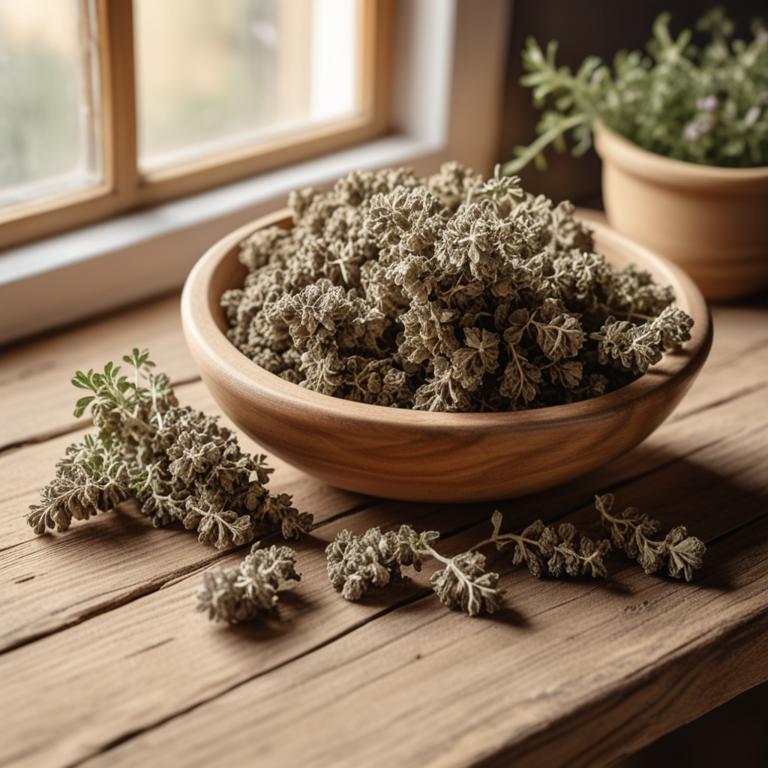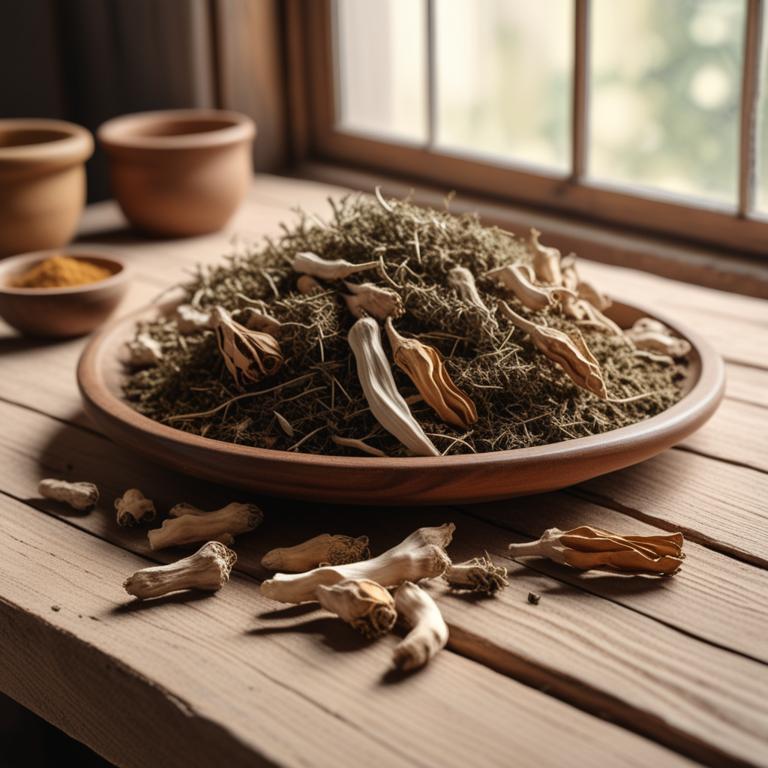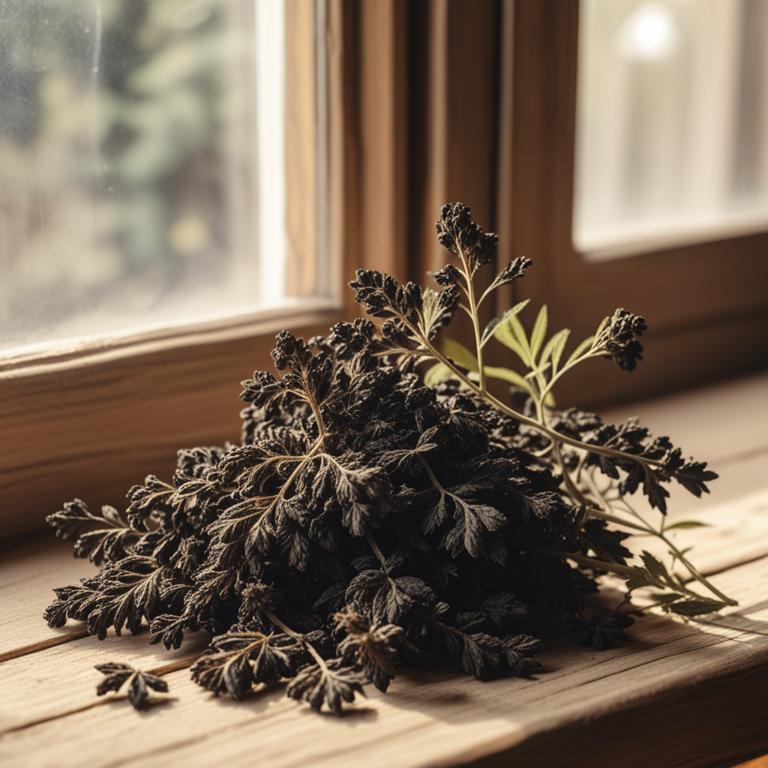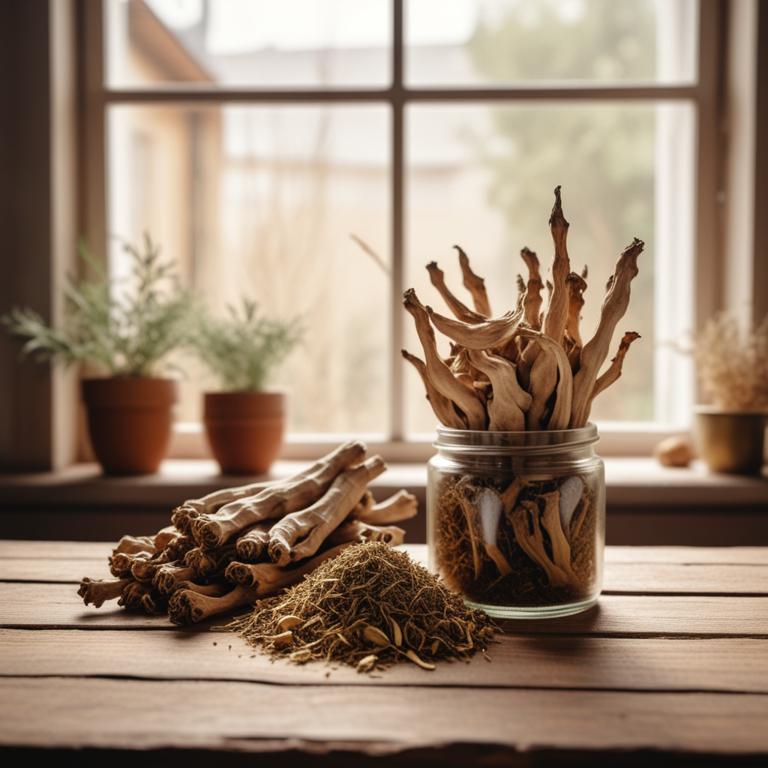Updated: Dec 1, 2024
Understanding Sinusitis: Causes, Herbal Remedies, and Natural Treatments

Sinusitis is an inflammation of the sinuses, which are the small air-filled cavities in our face.
When these cavities become inflamed, it can lead to a buildup of mucus, causing congestion, headaches, and facial pain. This can make it difficult to breathe, sleep, and even perform daily tasks. Sinusitis can be caused by a variety of factors, including allergies, colds, and infections. Some people may be more prone to sinusitis due to a deviated septum or other anatomical issues.
Fortunately, there are several herbal remedies that can help alleviate the symptoms of sinusitis. Herbs like eucalyptus, peppermint, and thyme have natural decongestant and anti-inflammatory properties that can help ease congestion and reduce swelling. These herbs can be consumed as teas, added to a warm bath, or inhaled through steam inhalation. For example, a steam inhalation with eucalyptus oil can help loosen mucus and reduce congestion, while a peppermint tea can help soothe a sore throat and calm the mind. Thyme tea, on the other hand, has antimicrobial properties that can help combat infections and promote healing.
By incorporating these herbal remedies into your daily routine, you may find relief from the symptoms of sinusitis and be able to breathe easier.
Table of Contents
- What are the contributing causes of sinusitis?
- What benefits can be derived from using herbs for sinusitis symptoms?
- What are the main herbal ingredients in sinusitis remedies?
- What are the most frequently used herbal treatments for sinusitis?
- Which herbs can cause complications in people with sinusitis?
- FAQ
What are the contributing causes of sinusitis?
The main causes of sinusitis are various and can be divided into several categories.
Allergies are a common cause of sinusitis, as they can make the nasal passages swell and produce excess mucus, which can lead to congestion and inflammation in the sinuses. This can be due to allergies to dust, pollen, or pet dander.
When you catch a cold or the flu, the viral infection can spread to the sinuses and cause inflammation and congestion. If the infection is caused by a virus, it may take longer to recover than if it were caused by bacteria. Bacterial infections can also occur if the sinuses become infected with bacteria, often as a result of a viral infection.
Anatomical abnormalities, such as a deviated septum or nasal polyps, can also contribute to sinusitis by blocking the flow of mucus and creating a breeding ground for bacteria and other microorganisms.
What benefits can be derived from using herbs for sinusitis symptoms?
Using herbs to treat sinusitis can be very helpful.
One of the main benefits is that they can reduce inflammation and swelling in the nasal passages, making it easier to breathe. Some herbs have natural anti-inflammatory properties that can help to calm down the sinuses and reduce congestion. They can also help to loosen and clear out mucus, which can become trapped in the sinuses and cause further problems.
Additionally, certain herbs have antimicrobial properties that can help to fight off infections and prevent further sinusitis flare-ups. This can be especially helpful for people who experience recurring sinusitis. Herbs can also be used to relieve sinus pressure and headaches, which are common symptoms of sinusitis.
By reducing the severity of these symptoms, herbs can improve the quality of life for people with sinusitis, allowing them to breathe easier and feel more comfortable.
What are the main herbal ingredients in sinusitis remedies?

Herbs can be a great natural way to help with sinusitis.
Eucalyptus globulus, also known as eucalyptus oil, is a popular remedy for sinusitis. It has natural decongestant properties that help to clear out mucus and ease congestion. When inhaled, it helps to loosen and clear out mucus from the nasal passages, making it easier to breathe. Another herb that's often used to help with sinusitis is Zingiber officinale, or ginger. Ginger has anti-inflammatory properties that can help to reduce swelling in the sinuses, which can make it easier to breathe. It also has a natural expectorant effect, which means it helps to bring up mucus from the lungs, making it easier to clear out. Rosmarinus officinalis, or rosemary, is another herb that's sometimes used to help with sinusitis.
Rosemary has natural antimicrobial properties that can help to fight off infections that can cause sinusitis. It also has anti-inflammatory properties that can help to reduce swelling in the sinuses. Echinacea purpurea, or coneflower, is often taken as a supplement to help boost the immune system, which can help to prevent sinusitis. It has natural anti-inflammatory properties that can help to reduce swelling in the sinuses, and it also has antimicrobial properties that can help to fight off infections. Thymus vulgaris, or thyme, is another herb that's sometimes used to help with sinusitis. Thyme has natural antimicrobial properties that can help to fight off infections that can cause sinusitis. It also has a natural decongestant effect, which means it can help to clear out mucus from the nasal passages. These herbs can be used in different ways, such as by inhaling their essential oils, drinking teas made from them, or taking them as supplements.
They may not cure sinusitis, but they can help to alleviate its symptoms and make it easier to breathe.
What are the most frequently used herbal treatments for sinusitis?

When it comes to treating sinusitis, herbal preparations can be a great help.
A decoction is a strong liquid made by boiling herbs in water. It's good for sinusitis because the steam from the decoction can help loosen and clear out mucus and other debris from the sinuses. Some popular herbs for decoctions include eucalyptus and thyme, which have natural decongestant properties. An infusion is a liquid made by steeping herbs in hot water. It's also good for sinusitis because it's easy to drink and can help soothe the sinuses. Infusions are often made with herbs like peppermint and ginger, which have anti-inflammatory properties that can help reduce swelling in the sinuses. A poultice is a paste made by mixing herbs with a wetting agent like water or oil.
It's applied directly to the skin, usually over the affected area. Poultices can be helpful for sinusitis because they can help bring down a fever and reduce sinus pain. Some herbs that are often used in poultices include garlic and onion, which have antibacterial properties that can help fight off infections. A tincture is a concentrated liquid made by soaking herbs in a solvent like alcohol or glycerin. Tinctures are often taken orally and can be helpful for sinusitis because they contain concentrated amounts of active ingredients. Some popular herbs for tinctures include echinacea and goldenseal, which have immune-boosting properties that can help fight off infections. A salve is a topical cream or ointment made by mixing herbs with a base like coconut oil or beeswax. Salves can be helpful for sinusitis because they can help soothe and moisturize the skin, reducing irritation and inflammation.
Some herbs that are often used in salves include calendula and tea tree oil, which have antiseptic properties that can help prevent infection.
Additional Resources:
Which herbs can cause complications in people with sinusitis?
If you have sinusitis, it's best to steer clear of certain herbs.
Curcuma longa, also known as turmeric, contains a compound that can irritate your sinuses and make congestion worse. Ginkgo biloba is known to increase blood flow, which can make your sinuses work harder and lead to more nasal congestion.
Lavandula angustifolia, or lavender, can be a problem because it can dry out your nasal passages, making it harder to breathe. Sassafras albidum contains a chemical that can stimulate your sinuses and make them produce more mucus, making it harder to clear out your congestion. Foeniculum vulgare, or fennel, can also dry out your nasal passages, which can worsen sinusitis symptoms.
When you have sinusitis, you want to be gentle with your sinuses, not stimulate them further, so it's best to avoid these herbs and look for alternatives that can help ease your congestion.
FAQ
Are there any specific herbs that can prevent sinusitis?
Eucalyptus and thyme are often used to help ease sinusitis symptoms.
They have anti-inflammatory properties that can reduce swelling in the nasal passages. Peppermint and ginger can also help thin mucus, making it easier to breathe.
These herbs can be inhaled through steam or taken as tea to provide relief from sinus pressure and congestion.
Is it safe to use herbal remedies for sinusitis during pregnancy?
During pregnancy, it's best to be cautious with herbal remedies for sinusitis.
Some herbs, like peppermint and eucalyptus, are generally considered safe, but their potency might increase the risk of uterus contractions. Other herbs, like sage and thyme, may affect blood pressure or interact with medications.
Use them under careful consideration.
Are there any herbs that can reduce the frequency of sinusitis?
Ginger and eucalyptus are two herbs that may help reduce sinusitis symptoms.
Ginger has anti-inflammatory properties that can ease sinus pressure and congestion. Eucalyptus, on the other hand, is known for its decongestant properties, which can help clear out mucus and open up airways.
Drinking ginger tea or inhaling eucalyptus oil may provide relief.
Related Articles
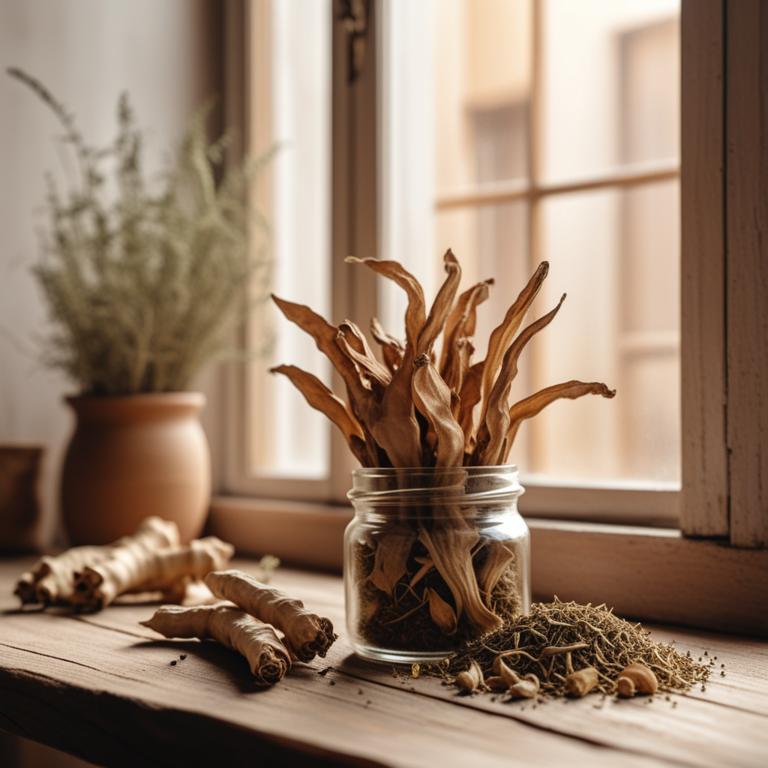
Understanding and Treating Dry Cough with Medicinal Herbs and Herbal Preparations

Altitude Sickness Prevention: Causes, Medicinal Herbs, and Natural Remedies
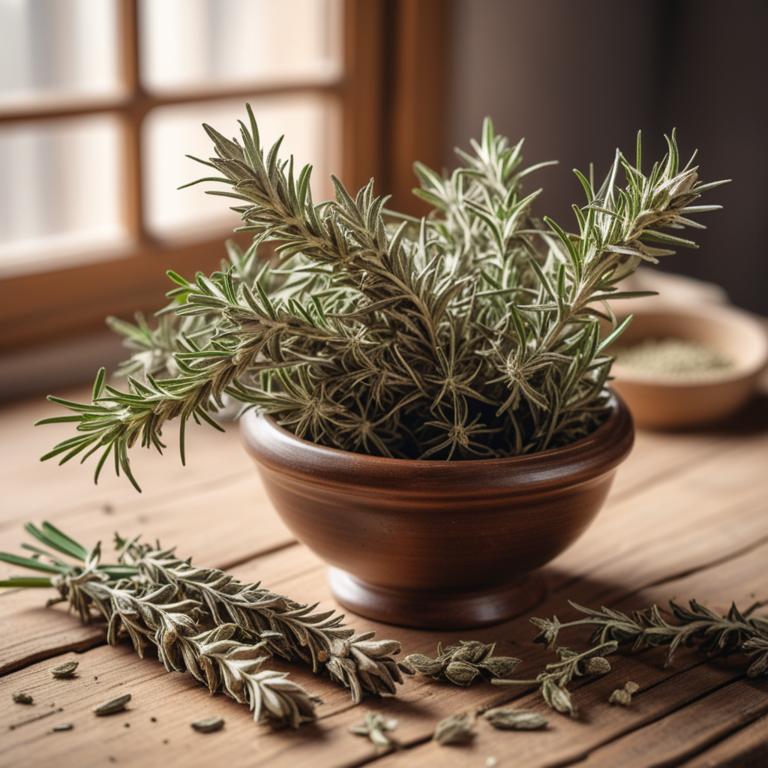
Understanding Sinusitis: Causes, Herbal Remedies, and Natural Treatments
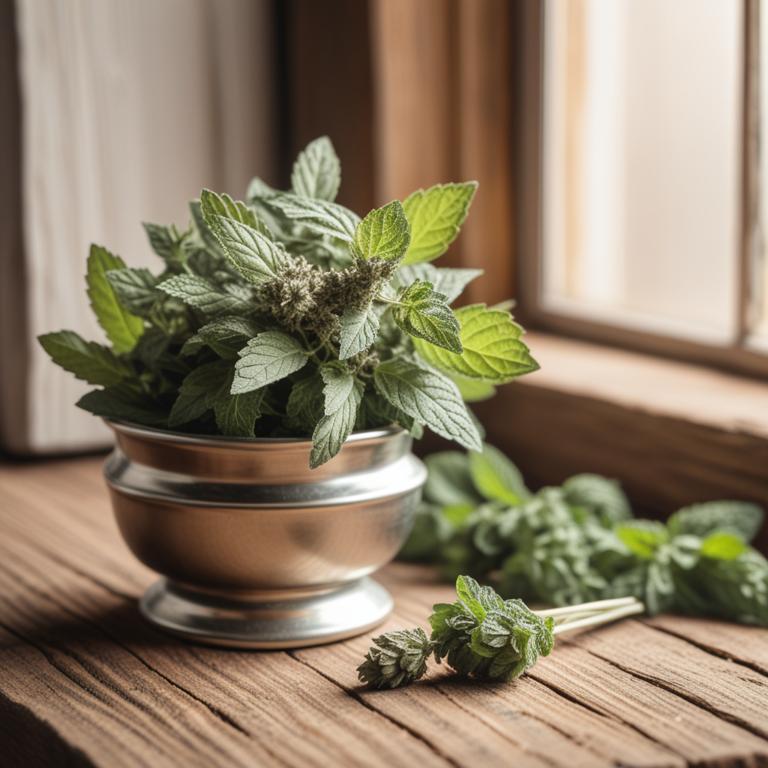
Throat Irritation Relief: Natural Causes and Effective Medicinal Herbs

Tickling Throat Remedies: Causes, Medicinal Herbs, and Herbal Preparations for Sore Throat
